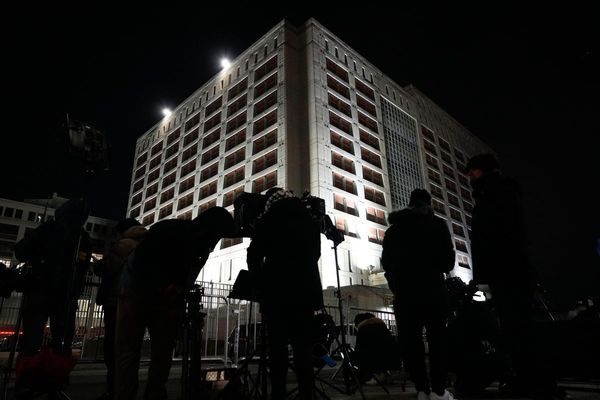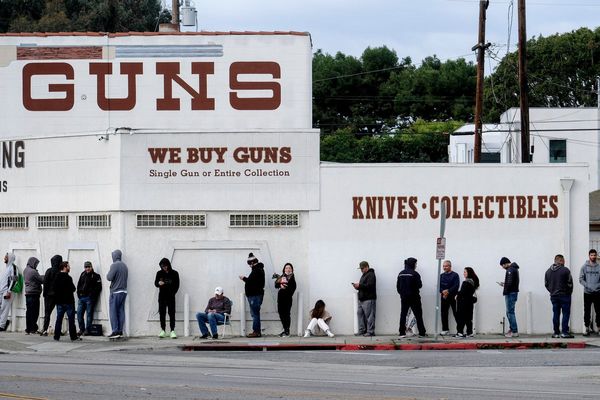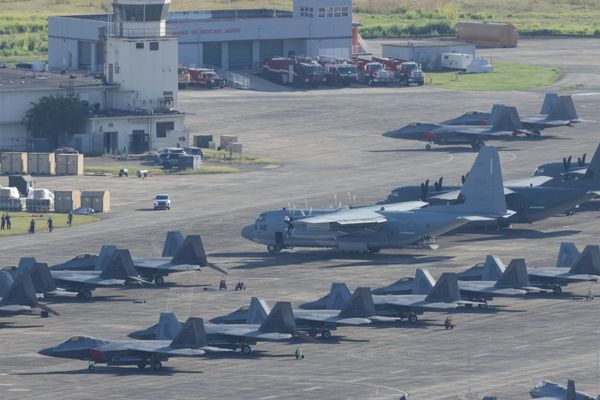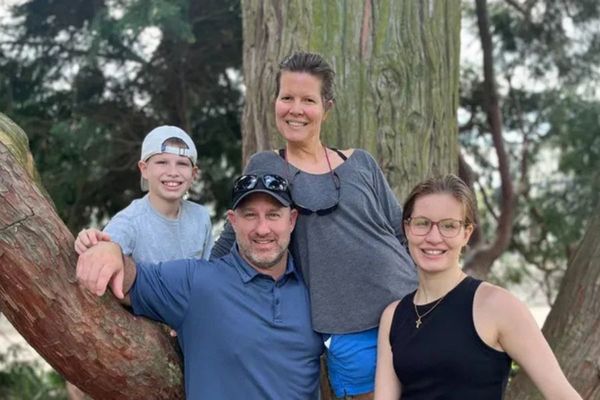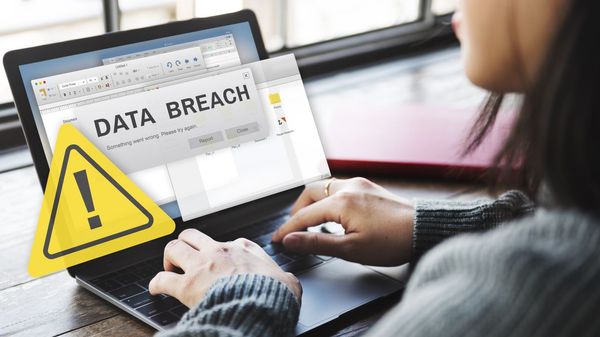
In Your Say readers tell Crikey what they think about our stories. Today Qantas has sent sparks flying by offering only meat in its food service, and AUKUS nosedives.
On service — what service? — on Qantas
Roger Stanton writes: I’d rather walk than fly Qantas again. Having known two Qantas engineers who very gratefully grasped redundancy some time ago I wouldn’t feel safe after what they’ve told me.
John Donovan writes: I have unfortunately experienced the same service as John Dee on my post-COVID Qantas flights. I’ve been flying with it as a frequent flyer for more than 30 years. In that time I’ve consistently been at platinum status, and for almost two decades was in the chairman’s club. As a vegetarian, I’ve always had a special meal whether on domestic or international. That went out the proverbial window post-COVID — eat what you’re given or nothing at all. On my last few flights, I had zero alternatives — not even a bread roll. Honestly, the flight crew really did not seem to care. No apology, just: “No special meals for domestic.”
I realise this is a First World problem, but after 30 years in its frequent flyer program, being told to go hungry at the prices it charges is pretty piss-poor. I’m taking the family to Europe at the end of the year. We did not book with Qantas, even with all the points I have accrued. Well done, Alan Joyce. (PS: I’ve sent three or four polite emails and have received no replies.)
J Attwood writes: So no “niche” food options for most Qantas domestic flights. What next? Same for the Qantas lounge? One size does not fit all when it comes to food. Qantas is indeed going down, down, down!
Chris Lewis writes: Qantas has been so badly trashed it may never be able to reclaim a leadership place in aviation. My last two flights have been so awful — from booking through to arrival — that I have joined the Anybody Other Than Qantas set, which is sad after 65 years on the Flying Kangaroo. I can only hope the QF board will wake up and deliver top-level change. (The ground and air staff were terrific despite the obvious pressures under which they are forced to work.)
John McCombe writes: Why is this privately owned airline referred to as our “national carrier”? What price is this naming asset? A public bargaining chip, surely? Or we could just walk across to another carrier?
Jean Crawshaw writes: For those requiring gluten-free meals it is generally not a matter of choice but rather a dietary requirement for the diagnosed medical condition of coeliac disease. For a company such as Qantas to be ignoring this in this day and age is insulting and ignorant. As a coeliac, I’m happy to forgo a meal (which I can’t eat) but don’t then have the audacity to charge me full price for the flight.
Denis Hay writes: I believe privatisation has been a massive con job resulting in price gouging and poor service. I’m sure many Australians would agree that all our essential services, including Qantas, should be taken back into public ownership. I cannot think of one privatised service that has resulted in better service to the public and at a reasonable price. If fact, I do not think essential services should be run for a profit at all; they are supposed to be a public service.
David Wright writes: My partner and I have decided not to fly on any Australian airline for the foreseeable future. If we cannot drive, we will travel by train or bus. Qantas has been my go-to airline for years; in previous jobs, I had to fly frequently around Australia and it was mostly by Qantas. I am just so glad I do not have to do that anymore because I could not bear to have to cope with missing baggage and cancelled flights.
Margaret Smith writes: I am 77 and I have flown with Qantas for 60 years. Having lived in both the UK and the US I have done a lot of international travel. I shall never travel with Qantas again — unless it makes significant changes. I just cannot accept the unreliability of its service, and the inability to get anyone on the phone to help. There is also the concern that its incompetence extends to its maintenance.
On sinking AUKUS
Gayle Davies writes: Australia should “worm its way out of the AUKUS deal” and divorce itself from any kind of military alliance with the US and the UK. If we must have more submarines (but why? Who knows who our imagined enemy will be by 2040, or even if Australia and China will still exist) we should go crawling back to the French — after all, we have Emmanuel Macron to thank for articulating what we all suspected/knew about Scott Morrison.
Australia, itself a victim of British nuclear testing, should respect the fact that the Pacific, a victim of both British and American nuclear testing, is a nuclear-free zone (under the Treaty of Rarotonga). China is quite justified in criticising the International Atomic Energy Agency’s report: the IAEA’s role is to monitor nuclear power used for peaceful purposes. The argument that the subs will not carry nuclear weapons is nonsense — they will be used for spying, which is a military purpose. I think Anthony Albanese — having correctly observed the proprieties on the death of the queen — can now afford to be more daring about repositioning Australia away from the US and UK military-industrial complex.
Denys Smith writes: The AUKUS nuclear-powered submarines surfaced out of nowhere in September 2021. Australians are still gobsmacked. Nuclear power is feared in Australia but suddenly it’s OK to stick weapons-grade uranium into our submarines? Five years into the French deal we should never have begun, we enter an AUKUS deal we should never have begun. Our fear of nuclear power is irrational. There is no doubt it is the way to go. Why didn’t we ask the French for their standard nuclear-powered submarine which does not use weapons-grade uranium? Less time for construction, much less money per submarine, more Australian manufacturing involvement, less conflict with the nuclear non-proliferation treaty. So what if we need to change the power system every 15 years?
Derek O’Brien writes: Could undoing the Morrison decision be done without upsetting the US and UK? That is important, but just as important is the actual getting of our submarines. The original decision to purchase conventionally powered submarines from the French, which required a modification from nuclear to diesel operation, left us with a second-class fleet. Cost-wise, and delivery time-wise, we would have been better off accepting the French Attack-class submarines in nuclear-power mode; no costly redesigns needed and a proved vessel to boot. Labor should begin negotiating with the French to reignite the contract severed by the lying Scott Morrison to purchase the standard nuclear-powered Attack-class submarine, ensuring a faster replacement of our submarine fleet and bringing our naval strength into the 21st century.
Roger Clifton writes: By the 2040s climate change will have emerged as the No. 1 threat for Australia, China and every other country in between — for which submarines will be completely useless. Rather than an Australian Defence Force, an Australian Disaster Response Force would require tools appropriate for its role. Our helicopter-bearing ships proved their worth in Indonesia. Long-range reconnaissance aircraft already watch our seas. Conscripts might be trained for all types of disasters, ready for instant teamwork with State Emergency Services and international efforts.
F Dagnee writes: The French have strategic interests and territories in the Pacific. They have technology, both nuclear and conventional. They have capacity and access to further EU industrial partners if needed. They also cherish their relationship and friendship with Australia — unlike the UK or the US who see their own interests first. Partnership with France, an influential EU member, can only benefit Australia in the long term and ensure its full independence from the meddling US. It would make a lot of common sense. Away from sycophants for a relation between equals.
On old king coal
David Arthur writes: The sale of Vales Point to a tax haven-based operation is not about extending the operating life of Vales Point (it will still shut down as and when renewables can replace it). The sale of Vales Point to a tax haven-based operation is about St Baker and Flannery avoiding having to pay costs of clean-up and site remediation after the plant is shut down. Like most Australians who don’t live anywhere near Vales Point, I am unlikely to be directly affected by the operation for a decade or two of that polluter. I will, however, be affected by the drain on taxpayer funds that will be incurred in clean-up costs after the plant is finally closed down.
Roger Clifton writes: Logically these decrepit coal-fired power stations should have been converted to nuclear long ago. The previous government lacked the integrity to do it and the current government lacks the moral spine. Faced with the election promise to reduce emissions by 43%, we can expect that the Labor government will instead allow their conversion to gas. Effectively, they are preparing to increase our use of fossil gas. We can expect its wool-pulling to include reassurances that every time we install more gas, we halve our emissions.
On living like a King Charles
Peter M Lewis writes: I read these articles and think that with all the poverty throughout the world, it’s an absolute disgrace. The population of the UK must be silly to opt to avoid the fact that the monarchy enjoys lifestyle-plus at a cost to them. Why is it exempted from death taxes when hard-working people saving for their future and retirement have to give away a substantial part of their funds on death? It makes no sense. While I am an anti-monarchist, I did watch some of the pomp and circumstance after the queen died. I wonder: how much did UK taxpayers have to cough up for putting on the shows?
Joel Black writes: I am saddened and disappointed at the way Crikey writers have rushed to mock King Charles III over his encounter with a leaky pen, especially Charlie Lewis in “King Charles v pen and ink”. I understand that the writing style of much that is written for Crikey is wry and dry, but I am puzzled by the reactions of many in the media to the events which unfolded over the past week. It seems the 24-hour news cycle, the alternate reality of social media, and a rush to defend some version of “freedom of speech”, have inoculated many against feeling any compassion for a grieving person who is perceived as a fair game public figure, especially if doing so can kickstart a moribund push to oust the head of state.
Maybe there is a deeper derangement that has merely been triggered by the queen’s death. I have seen, on top of a bizarre fascination with leaking pens, video snippets of the king “furious” that an inkstand hadn’t been moved (he didn’t look “furious” to me), an article about a cloud that looked like the late queen (maybe if you’re drunk or stoned), video snippets of a guard fainting in Westminster Hall (“Was he OK?” Why would I ask that?), shocking revelations of who is left out of the will (oh please, even I know that a monarch’s will may never see the light of day) and a suggestion that retweeting such rubbish is a better, more “politically savvy move” for the republican movement than engaging in debate. I doubt it. You would be better served by showing a bit more respect.
If something in Crikey has pleased, annoyed or inspired you, let us know by writing to letters@crikey.com.au. Please include your full name to be considered for publication. We reserve the right to edit for length and clarity.
